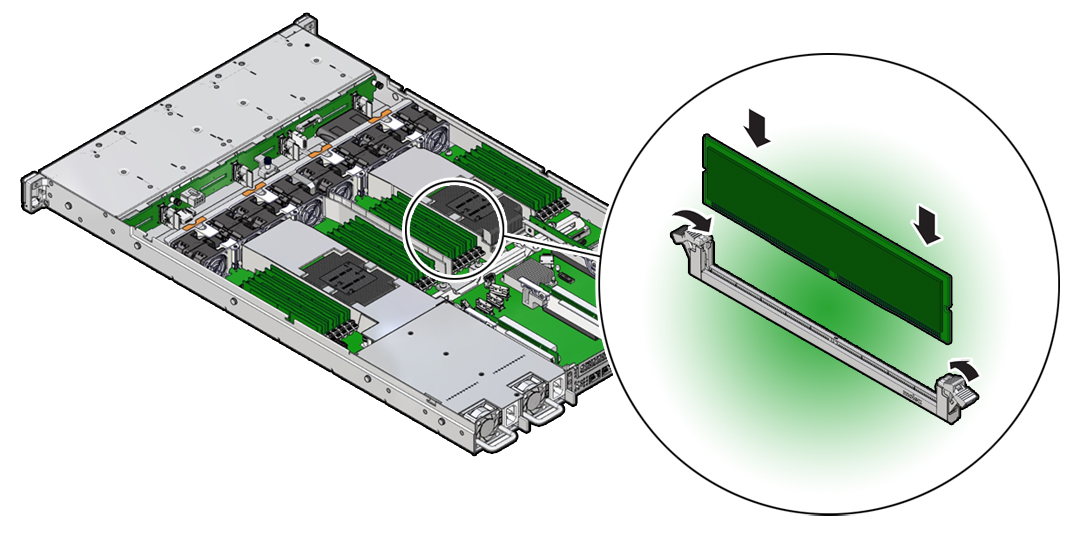Install a DIMM
- Unpack the replacement DIMM and place it on an antistatic mat.
-
Ensure that the replacement DIMM matches the size, type, and rank of the DIMM
it is replacing.
You must not replace a dual-rank DIMM with a quad-rank DIMM and vice versa. If you violate this rule, the performance of the server might be adversely affected. For DIMM slot population rules, see DIMM Population Rules.
-
Install a DIMM.
- Ensure that the ejector tabs are in the open position.
-
Align the notch in the replacement DIMM with the connector key in the
connector slot.
The notch ensures that the DIMM is oriented correctly.
-
Push the DIMM into the connector slot until the ejector tabs lock the
DIMM in place.
If the DIMM does not easily seat into the connector slot, verify that the notch in the DIMM is aligned with the connector key in the connector slot. If the notch is not aligned, damage to the DIMM might occur.

- Repeat Step 3 until all replacement DIMMs are installed.
-
Return the server to operation.
- Install the server top cover.
- Return the server to the normal rack position.
- Reconnect the power cords to the server power supplies and reconnect the data cables.
-
Power on the server.
See Power On the Server.
- Verify that the power supply AC OK LED is lit.
-
(Optional) Use Oracle ILOM to clear server DIMM faults.
DIMM faults are automatically cleared after a new DIMM has been installed. If you need to manually clear DIMM faults, refer to the Oracle Integrated Lights Out Manager (ILOM) 5.0 Documentation Library at https://www.oracle.com/goto/ilom/docs.
Note - If you want to move a failed DIMM to a new DIMM slot or re-seat a DIMM for troubleshooting, you must first manually clear the associated DIMM fault. Otherwise, the DIMM fault might follow the DIMM to the new slot location or reoccur on the current slot location, causing a false DIMM fault condition.